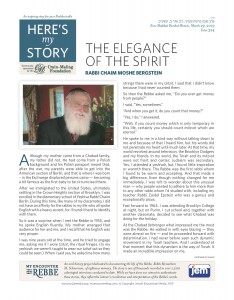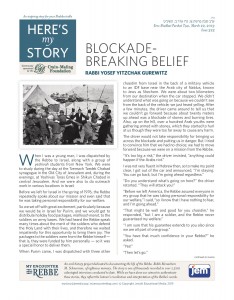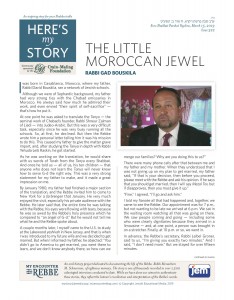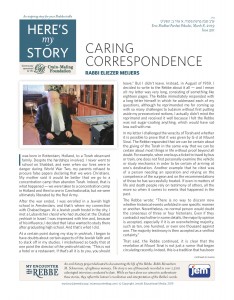The Elegance of the Spirit
Although my mother came from a Chabad family, my father did not. He had come from a Polish background and his Polish passport meant that, after the war, my parents were able to get into the American section of Berlin, and that is where I was born – in the Eschwege displaced persons camp – becoming a bit famous as the first baby to be circumcised there.
After we immigrated to the United States, ultimately settling in the Crown Heights section of Brooklyn, I was enrolled in the elementary school of Yeshiva Rabbi Chaim Berlin. During this time, like many of my classmates, I did not have an affinity for the rabbis in my life who all spoke English with a heavy accent, for I found it hard to identify with them.
So it was a surprise when I met the Rebbe in 1955, and he spoke English fluently. My mother arranged that audience for her and me, and I recall that his English was very proper.
I was nine years old at the time, and he tried to engage me, asking me if I wore tzitzit, the ritual fringes. (In my yeshivah, we weren’t taught to wear our tzitzit out so they could be seen.) When I said yes, he asked me how many strings there were in my tzitzit. I said that I didn’t know because I had never counted them.
So then the Rebbe asked me, “Do you ever get money from people?”
I said, “Yes, sometimes.”
“And when you get it, do you count that money?”
“Yes, I do,” I answered.
“Well, if you count money which is only temporary in this life, certainly you should count mitzvot which are eternal.” (more…)








